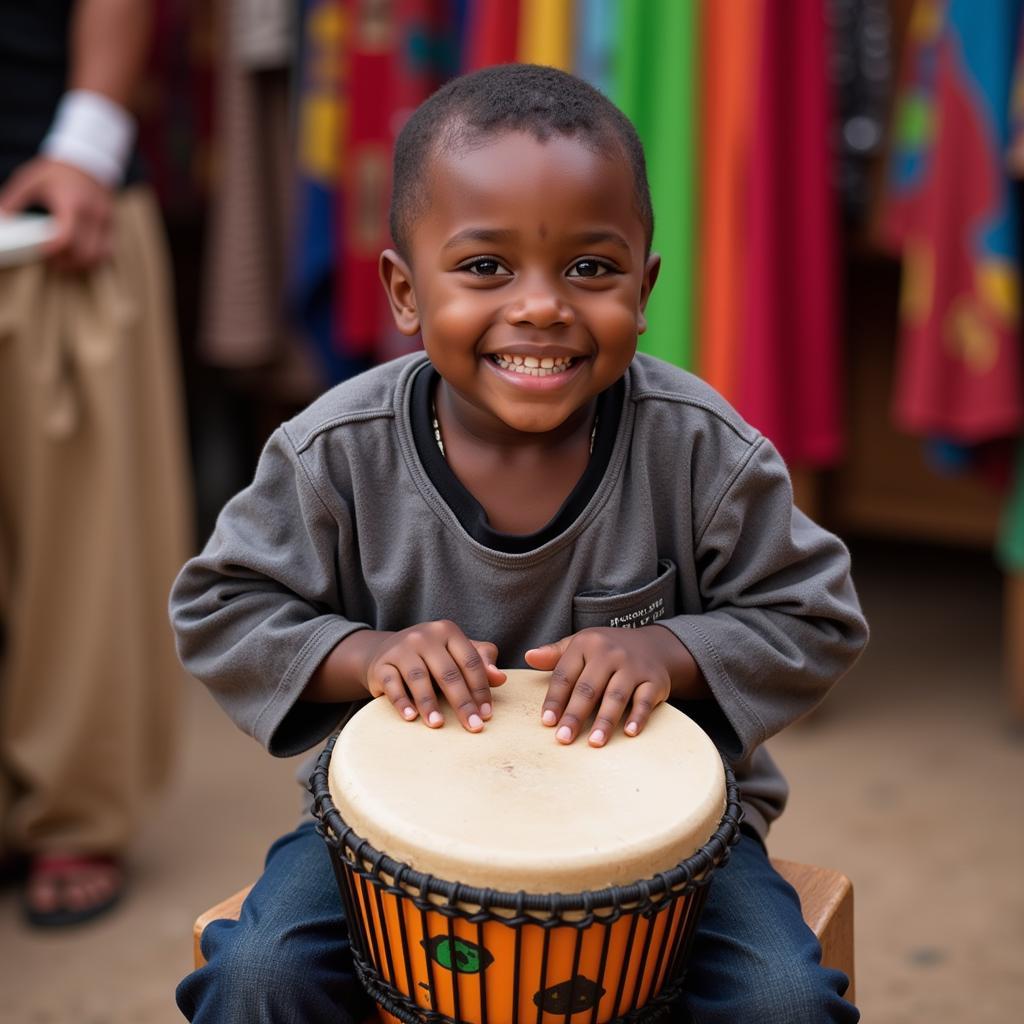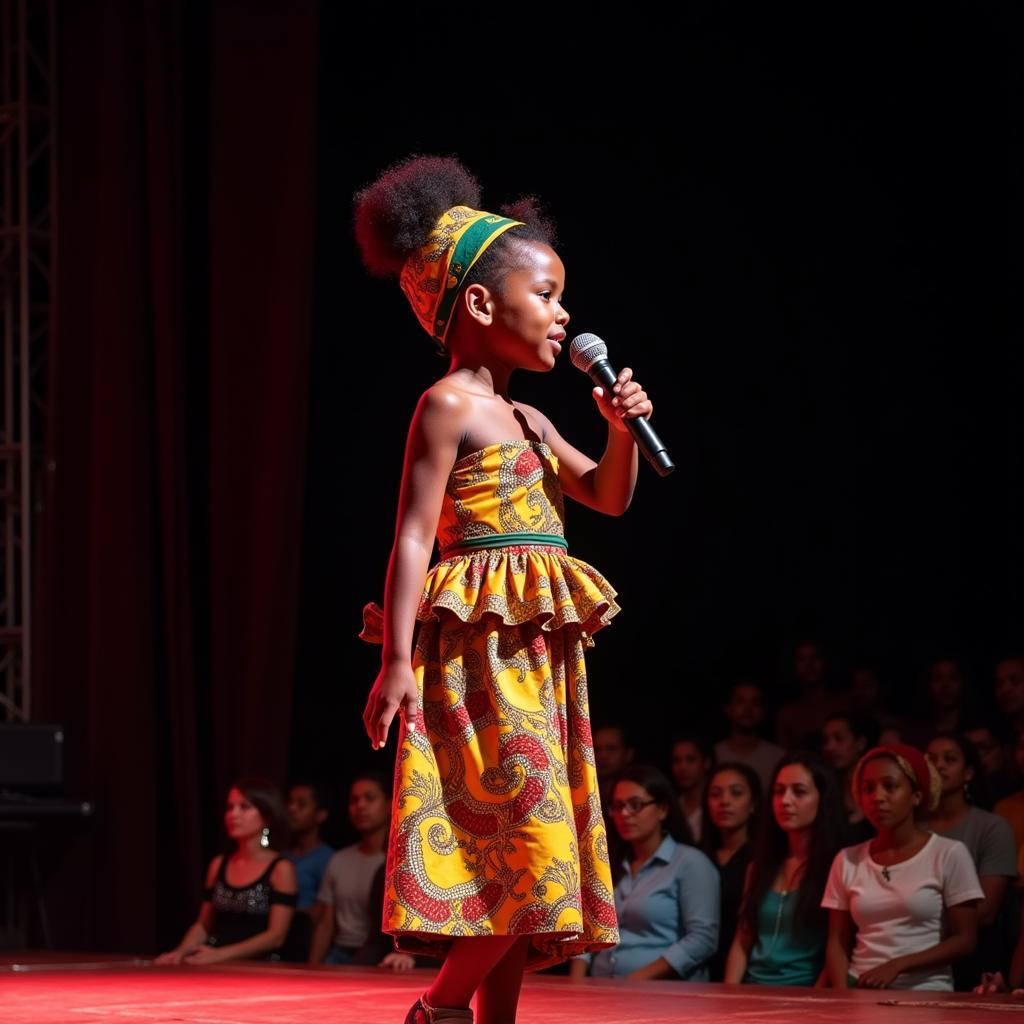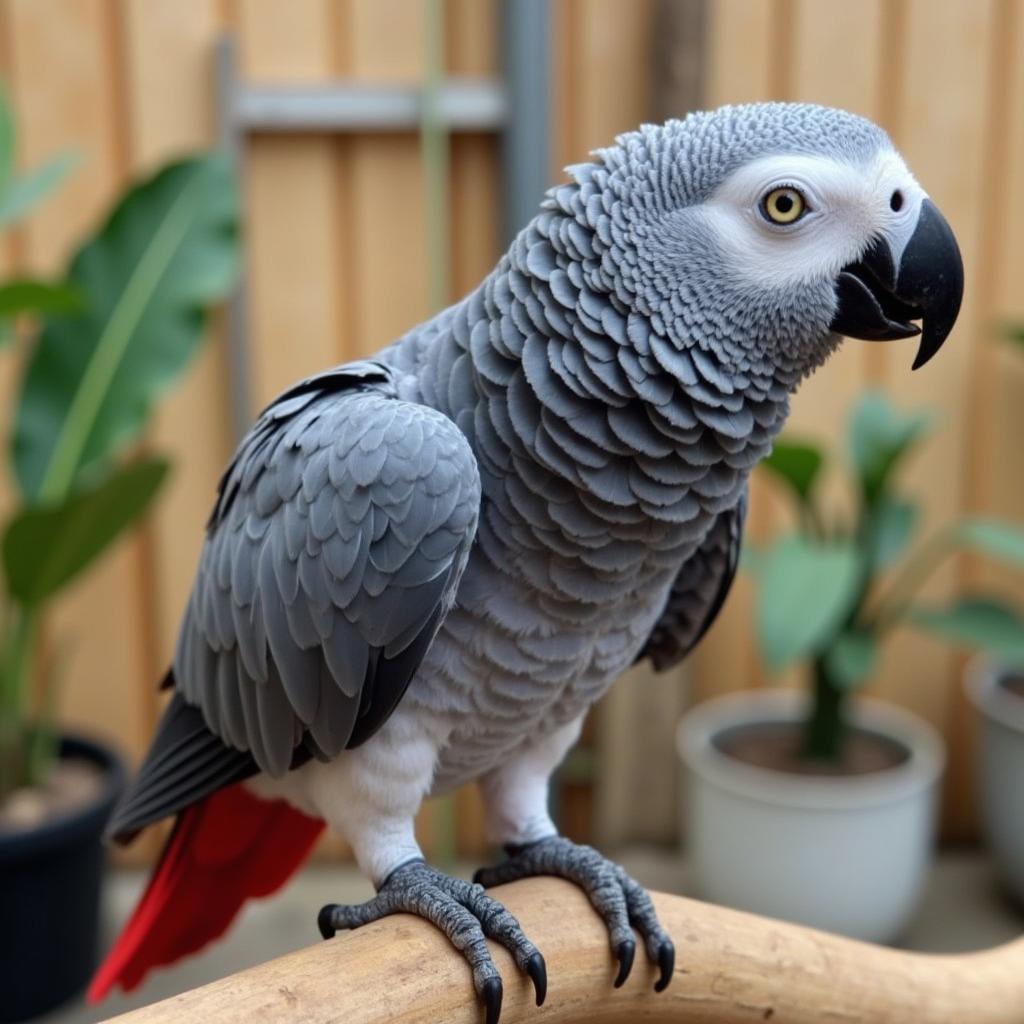The African Child Musician: A Tapestry of Talent and Tradition
From the dusty plains of the Serengeti to the bustling markets of Marrakech, the sound of music permeates the air, carrying with it the spirit of Africa. At the heart of this vibrant soundscape is the African Child Musician, a testament to the continent’s rich musical heritage and a beacon of hope for the future.
 African child playing djembe drum
African child playing djembe drum
Music as a Way of Life
Music in Africa is more than just entertainment; it’s woven into the very fabric of society. From a tender age, children are immersed in a world of rhythm and melody. Traditional songs accompany every aspect of life – births, deaths, harvests, and even everyday chores. This early exposure cultivates a natural affinity for music, turning young ears into keen listeners and tiny hands into skilled instruments.
Instruments That Sing and Speak
The African child musician is often a master of multiple instruments. Traditional instruments, crafted from readily available materials, produce a unique and captivating soundscape. The resonant beat of the djembe drum, the haunting melodies of the kora (a West African harp), and the soulful tunes of the mbira (a thumb piano) are just a few examples of the diverse instrumentation that characterizes African music.
Do you know a popular song sung by an African boy? You can listen to it on african boy song.
Nurturing Talent, Preserving Tradition
In many African cultures, music is passed down through generations, often within families or communities. Elders mentor young apprentices, sharing not just musical techniques but also the cultural significance and stories behind each song and rhythm. This oral tradition ensures the preservation of ancient musical knowledge and reinforces the sense of community.
Challenges and Opportunities
Despite the undeniable talent and passion of African child musicians, many face significant challenges. Poverty, lack of access to quality instruments and music education, and limited opportunities for exposure and recognition can hinder their growth and potential.
 African child musician performing on stage
African child musician performing on stage
However, there is growing global recognition of the exceptional musical talent emerging from Africa. Organizations and individuals are working to provide young musicians with access to resources, platforms, and opportunities to showcase their skills to a wider audience.
The Future of African Music
The African child musician is a powerful symbol of the continent’s resilience, creativity, and enduring spirit. As these young musicians continue to hone their craft and share their unique musical heritage with the world, they are not only preserving tradition but also shaping the future of African music, ensuring its vibrancy for generations to come.
If you’re interested in exploring the rich tapestry of African folk music, you can find a treasure trove of performances on african folk songs youtube.
FAQ
Q: What makes African music unique?
A: African music is characterized by its complex rhythms, call-and-response vocals, polyrhythms (multiple rhythms played simultaneously), and the use of a wide array of traditional instruments.
Q: How important is music education in Africa?
A: Music education plays a crucial role in preserving cultural heritage, fostering creativity, and providing young people with valuable skills and opportunities.
Q: How can I support African child musicians?
A: You can support by purchasing their music, attending their performances, donating to organizations that promote music education in Africa, and spreading awareness about their talent.
Need Help?
For more information and assistance, please contact us at:
- Phone Number: +255768904061
- Email: kaka.mag@gmail.com
- Address: Mbarali DC Mawindi, Kangaga, Tanzania
Our dedicated customer support team is available 24/7 to assist you.

